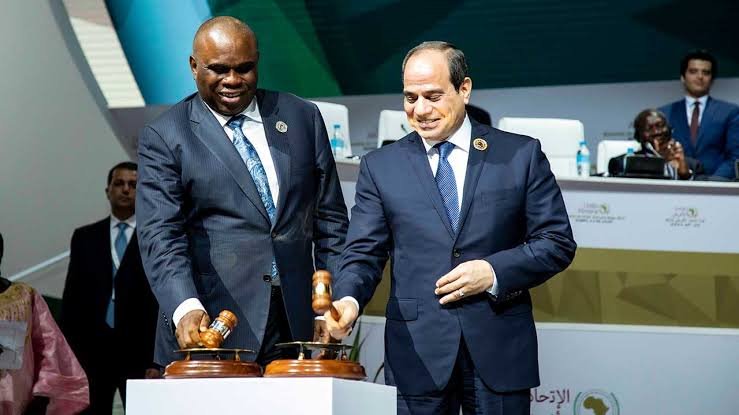The operational phase of the African Continental Free Trade Area (AfCFTA) was officially launched on July 7, 2019, during the 12th Extraordinary Summit of the African Union held in Niamey, Niger. This significant milestone marked the culmination of efforts that began with the adoption of the AfCFTA agreement on March 21, 2018, in Kigali, and its enforcement on May 30, 2019.
During the launch, 27 countries that had ratified the agreement were recognized, while 28 others had signed but were yet to ratify. Eritrea remains the only African Union member state yet to sign the agreement. Ghana was also announced as the host of the AfCFTA Secretariat, and a commemorative plaque was unveiled to mark the occasion.
The launch introduced five critical instruments to facilitate trade under the AfCFTA:
1. Rules of Origin: Establishing conditions for duty-free trade of goods and services.
2. Tariff Concessions: A 90% tariff liberalization with sensitive products gradually included over a ten-year transition period.
3. Non-Tariff Barriers Monitoring Mechanism: An online system to track and address barriers hindering intra-African trade, such as poor infrastructure and administrative inefficiencies.
4. Pan-African Payment and Settlement System: A mechanism for timely payments in local currencies with net foreign exchange settlements at the end of each year.
5. African Trade Observatory: A portal providing trade statistics, opportunities, and exporter/importer information across the continent.
The AfCFTA is poised to become the largest free trade area globally since the creation of the World Trade Organization. With Africa’s population projected to grow from 1.2 billion to 2.5 billion by 2050, the agreement is expected to:
Increase intra-African trade from the current 15-18%.
Foster regional value chains in manufacturing, agro-processing, and other sectors.
Enhance African companies’ access to global markets.
Strengthen the continent’s economic and trade diplomacy.
Trading under the AfCFTA was scheduled to commence on July 1, 2020. Until Ghana’s Secretariat becomes fully operational, the African Union Commission will oversee its interim operations, ensuring the AfCFTA’s effective implementation and integration into Africa’s economic framework.



